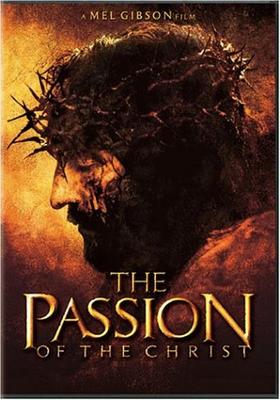 It has been eight days since Mel Gibson was arrested for drunk driving, and four days since he issued his second apology — the one in which he apologized specifically for making anti-Semitic remarks during his arrest. There has been a lot of media coverage this past week of the implications of all this for Mel Gibson himself … but what about the implications for the film that first raised the allegations of anti-Semitism on Gibson’s part, or for the Christian community that rallied to his defense at that time?
It has been eight days since Mel Gibson was arrested for drunk driving, and four days since he issued his second apology — the one in which he apologized specifically for making anti-Semitic remarks during his arrest. There has been a lot of media coverage this past week of the implications of all this for Mel Gibson himself … but what about the implications for the film that first raised the allegations of anti-Semitism on Gibson’s part, or for the Christian community that rallied to his defense at that time?
Christianity Today’s Weblog begins its news summary thusly:
Lots of links on responses to the Gibson statements. But there are still some stories not touched, believe it or not. Here’s one Weblog would like to read: Do those church and ministry leaders who so vociferously defended Gibson against charges of anti-Semitism during The Passion controversy now feel burned? The Passion launched a wave of efforts to get churches and pastors directly involved in film marketing. Churches bought out theaters for the film (and then for Narnia, Cinderella Man, End of the Spear, and even The Da Vinci Code). Movie posters were placed on the cover of church bulletins. Will pastors now be more skittish about such direct involvement?
Another question: Back in February, the controversy over the casting of gay actor Chad Allen as missionary Nate Saint in The End of the Spear largely focused on whether one can separate art from the artist. Are those Christian leaders who argued against the casting of Allen encouraging a “second look” at The Passion in the wake of Gibson’s comments? Are those who defended the Allen casting still using “separate the art and the artist” arguments in this case?
Meanwhile, the Los Angeles Times — which ran a story yesterday on friends of Gibson’s, including Jewish friends, who still support him despite his lapse, and who say that Gibson has been on and off the wagon over the years despite the popular impression that he had cleaned up his act way back in the early ’90s — has a column today by Tim Rutten which lists some of the “warning signs” that people should have heeded two or three years ago, and asks:
So why was all this ignored — or worse, dismissed — when so many conservative commentators and clergy were busily putting their collective imprimatur on Gibson’s “Passion”?
It’s a question the press ought to be asking them now. Given the state of the commenting class in today’s news media, there’s little point reopening the issue with commentators. They are, by and large, locked into ideological categories that simply preclude an admission of error. But it’s worth raising the issue with the clergy and religious activists who made “The Passion of the Christ” a box office hit.
National Assn. of Evangelicals President Ted Haggard fulsomely endorsed Gibson’s film. How does he feel about it now? More than 5,000 other Evangelical pastors gave Gibson a standing ovation when he screened the movie for them in Florida. It would be good to hear from a few of them, particularly the ones who sent their congregations surging into the theaters.
Father William J. Fulco S.J., the National Endowment for the Humanities professor of ancient Mediterranean studies at Loyola Marymount University in Los Angeles, did the Aramaic and Latin translations for Gibson’s movie and said at the time, “I would be aghast at any suggestion that Mel is anti-Semitic.” And now. . .?
In a column he wrote for his diocesan newspaper defending “The Passion,” Denver Archbishop Charles J. Chaput said of Gibson, “between a decent man and his critics, I’ll choose the decent man every time — until the evidence shows otherwise.”
OK.
I’ve said it before, and I’ll say it again: The Passion of the Christ is a profoundly personal work of art and thus should not have been treated as canonical or definitive, let alone God-breathed, the way that some pastors were apparently inclined to do. But at the same time, a work of art is not the artist, and can indeed be judged independently of its artist. Then again, artists frequently acknowledge that they didn’t always know quite what they were communicating through their art, that they gave expression to subconscious ideas without fully realizing it. So there might very well be anti-Semitic elements in The Passion of the Christ that Mel Gibson did not intend, and that Mel Gibson was indeed unaware that he was putting in there. This is not to say that the film is anywhere near as offensive as the remarks that Mel Gibson made on a stretch of Malibu road eight days ago; indeed, I do not think it is. But this is to say that we should be very careful how we go about the process of discerning and interpreting works of art — especially when they play on our faith-oriented inclinations.












